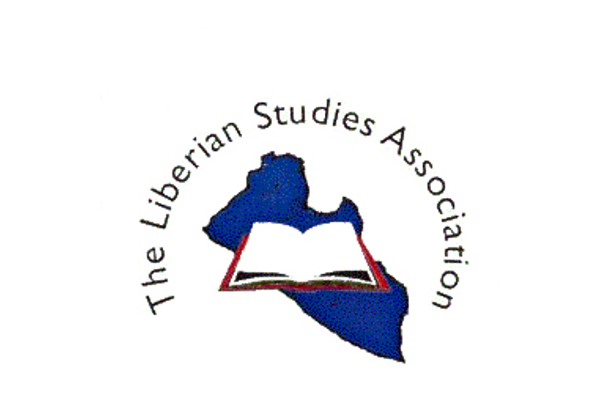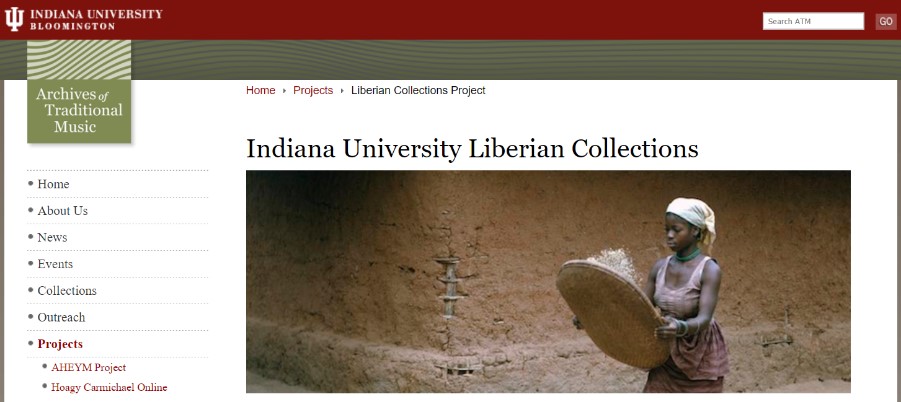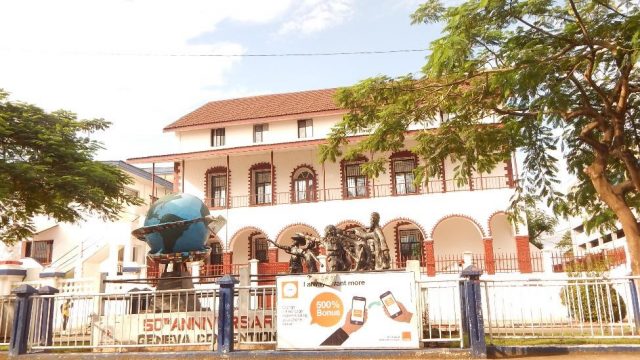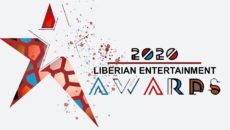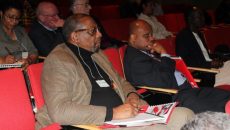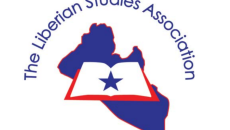A version of this piece was presented as a keynote address at the 50th anniversary celebration of the Liberian Studies Association in Rochester, NY.
I became aware of and joined the Liberian Studies Association in the early 1970s when the association was not more than four years old. I have therefore grown up with LSA and experienced much of its growing challenges. On this auspicious occasion of the 50th anniversary of LSA, I would like to reflect with you on some contemporary challenges facing the Liberia research community.
Let me, however, start by doing two things: the first is to thank the current leadership of LSA for the kind invitation to attend 2018 conference and address you on this 50th anniversary milestone. The second thing I feel obligated to do is to pay homage to the visionary founders of LSA.
In 1968, Professor Svend E. Holsoe, then of DePaul University, and Professor David M. Foley of the University of Georgia – two American scholars of the Liberia experience – secured a grant from the Carnegie Foundation and launched in the Fall of that year the Liberian Studies Journal, the forerunner of the Liberian Studies Association.
From the first, and unstructured gathering at Stanford University in 1969 of scholars and students from the United States, Liberia, and other countries, the LSA has endured through the vicissitudes of Liberia’s own turbulent history.
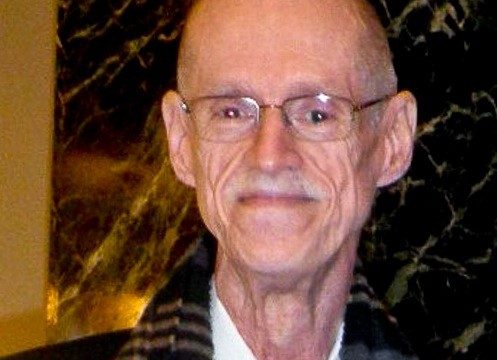
In 1968, Professor Svend E. Holsoe (pictured) and Professor David M. Foley launched the Liberian Studies Journal, the forerunner of the Liberian Studies Association.
But we must today do a bit more than chronicle the events of LSA, important though they are. We must place at the center of these celebrations the raison d’être for research on and about the nation and people of Liberia.
In this regard, I would like to invoke the memory of the late former President of the University of Liberia, Mary Antoinette Brown Sherman, whose scholarship thrust was the nexus between knowledge and development, or knowledge in service to development. See, for example, her 1967 doctoral dissertation that makes the compelling case for synthesizing traditional and western education in service to Liberia’s holistic development. Note also Dr. Sherman’s presidential address to the semi-annual conference of the Liberian Research Association in Monrovia in 1968, where she spoke on the timely topic: “The status of scientific research in Liberia.â€
To the question, why study Liberia, or why a forum devoted to the study of Liberia, the answer inevitably is two-fold: one, to serve the end of disinterested pursuit and advancement of knowledge, and two, to serve the end of development of the nation and people of Liberia.
Drawing my own inspiration from the life work of the late Dr. Sherman, I propose in this address to dwell on the research/development nexus or the quest to make research relevant to Liberia’s development. Though many other perspectives are conceivable, I have come here today to suggest that LSA at 50 consider taking a critical look at the state of scholarship on Liberia with a view to addressing some of the issues bearing on the welfare and wellbeing of the Liberian people.
Let us now briefly recall how the LSA went from an unstructured gathering of scholars to the subsequent emergence of a semblance of structure. Following about a decade of unstructured academic research on Liberia, particularly in the aftermath of African decolonization in the late 1950s and early 1960s, Stanford University was the first venue in 1969 with Dr. John Gay, Professor Martin Lowenkopf and then graduate student and later, Professor C. E. Zamba Liberty joining the prime movers in effectively launching the LSA.
The participants resolved to meet regularly and share research on Liberia. The individual hosting the meeting traditionally served as coordinator of the effort until the following year.
In 1970, Professor J. Gus Liebenow hosted the conference at Indiana University. Scholars convened seven other informal annual gatherings at university centers in the United States, for example, Delaware in 1972 (the first I attended), Iowa in 1973, and Michigan in 1974. By 1978, those attending the conference at Boston University decided formally to establish the Liberian Studies Association. LSA has met with regularity since then.
In 1978, the LSJ, which had operated independently, was transferred to the LSA. The membership also drafted a constitution and bylaws and elected Svend Holsoe as the first secretary/treasurer of the association. Holsoe in this way handled the affairs of the association until 1985 when Dr. Thomas Hendrix succeeded Holsoe. Hendrix died in 1994 and successors were Dr. Arnold Odio and Dr. Dianne Oyler before the election of Dr. Mary Moran, our dedicated current secretary/treasurer.
Holsoe incorporated another unit devoted to the study of Liberia – The Institute for Liberian Studies, Inc, in 1978/79. Located in Philadelphia, the Institute came to hold perhaps the richest collection available anywhere of research material on Liberia. It published, while it lasted, monographs and working papers on Liberia. Some here may be aware of the fact that these pioneering Holsoe efforts constitute the core of the now prestigious Indiana University Liberia Collections.
Though still an under-studied country, scholars at home and abroad have for long busied themselves with trying to understand Africa’s first republic.  There is an impressive and growing list of fine Liberian scholars, but they seem to be of recent vintage. Because of both time factor and concern that I may not include all, I will refrain from naming at this time.
Suffice it now to consider my 1995 compilation of the Liberia volume of the World Bibliographical Series as a handy source for earlier publications on Liberia. Efforts on the ground in Liberia have been spasmodic and perhaps remain so today.
Browsing through my personal collection I have come across issues of the Liberian Research Association Journal which appeared irregularly through the 1980s; Cuttington University College Research Journal, which was also published in the 1980s; University of Liberia Journal which was first published in 1958 and irregularly thereafter to the 1980s; the Liberian Historical Review (publication of the Liberian Historical Society which functioned between 1964 and1972); and the Liberian Law Journal which  was published in the 1960s. Before the advent of the internet, there were other publication efforts such as the Germany-based Liberia-Forum that published in the 1980s.
In a word, the efforts at systematically studying Liberia have hardly been a sustained one before the beginning of LSA. Interests have waxed and waned. And Liberian scholars have themselves remained largely at the margins of Liberian studies both before and since the start of LSA.
The fact must be inserted, however, that there were early Liberian thinkers and literary figures who sought to define a Liberian national purpose. But in more contemporary times, John Payne Mitchell earned a Ph.D. from the University of Chicago in 1955 and chose the career of a government bureaucrat. Augustus Feweh Caine similarly earned a Ph.D. from Michigan State University and ended his career as chairman of the National Democratic Party of Liberia. Though Dr. Abeodu Bowen Jones and her spouse, Dr. A.E. Nyema Jones, earned doctorates respectively from Northwestern University and the University of Chicago and made contributions to scholarship, they too were largely generators of ideas within governing bureaucracies.
Liberia cried out then, and she does today, for Liberians trained in the various professions to define, deepen and broaden the scope of Liberian studies.
And so, there are many challenges facing Liberian studies today. Again, I return to the question of raison d’être for research on Liberia, the nexus between Liberian studies and Liberia’s development.
As we pay homage to founders, should we be critically examining what they have bequeathed to us, to take Liberian studies to another level, or as some would say, liberate Liberian studies from certain shackles? What are the lessons that we can draw from the series of ethnographic studies undertaken in the last decades of the 20th century?
And how have the more glamorous studies of Liebenow, Robert Clower, and others contributed to our understanding of the Liberian nation and people in time and space, especially as they struggle with issues of identity and development in the context of a rapidly changing African and global community?
While there are conceivably many issues facing the Liberian studies community, I have chosen to flag seven issues for our collective consideration. They are:
- Liberia and the UNESCO general history of Africa
- Legacies of Svend Holsoe and Warren d’Azevedo
- The gauntlet of Professor Carl Patrick Burrowes
- The question of independent non-partisan think tanks in Liberia
- The state of Liberian scholarship on Liberian soil
- Archives and Museums in Liberia and expertise deficit
- Promise and peril of research and the natural sciences in Liberia
ISSUE ONE: Liberia and the UNESCO General History of Africa. What transpired, and with what impact on Liberian studies? This U.N. project was launched in 1964. The challenge was to reconstruct Africa’s history, liberating it from racial prejudices resulting from the slave trade and colonization, and “promoting an African perspective†of African history.
Now, how did Liberia figure in this effort? Beyond addressing pre-Liberia in the “pre-history of West Africa†and “West Africa Before the 7th century,†we find in Volume VII, AFRICA UNDER COLONIAL DOMINATION, 1880-1935 as edited by A.A. Boahen there appears an article titled “Liberia and Ethiopia, 1880-1914: the survival of two African States,†authored by Monday B. Akpan (based on contributions from Abeodu Bowen Jones and R. Pankhurst).
In the same volume there is another article titled “Ethiopia and Liberia, 1914-1935: two independent African states in the colonial era,†once again by the same authors earlier cited and the same indication of notes from Jones and Pankhurst. I have had cause to chat with Dr. Jones who narrated to me an experience that was not a happy one. The point here is that in contributing research notes but absent from the deliberations that framed the narrative, Liberia seemed marginalized in this monumental study designed to decolonize the history of all African peoples. Should LSA challenge its members to revisit this experience?
ISSUE TWO: Dual Legacies of Professor Svend Holsoe and Professor Warren dâ€Azevedo. On the passing of these two distinguished American scholars of the Liberia experience, I had cause to write tributes. For Holsoe, I wrote that his many contributions included ethnographic work among the Vai and others including cross-border groups.
There is here a significant body of scientific work that awaits vetting, the provision of alternative perspectives by scholars who are themselves associated with the ethnic groups under study. Liberian scholars schooled in the various disciplines are thus being challenged to step up to the plate and deepen our understanding of the country as well in its particularities as in its generalities.
For d’Azevedo I wrote of his pioneering scholarship among the Gola people, a scholarship that he employed to enhance our understanding of the Liberian state. In his series of articles titled “A Tribal Reaction to Nationalism,†he provided ample evidence “that the dynamics of Gola subjugation and eventual co-operative involvement in the emerging of the Liberian nation must be understood not only in terms of specific features of Gola and [colonial] Liberian social organization, but also in terms of regional historical events prior to colonial occupation and during the struggle on part of the newcomers to establish cultural and political jurisdiction over a portion of the West African coast.â€
The inference drawn from the study is that this way of viewing Gola reaction to nationalism in Liberia may well be applicable to other ethnic communities indigenous to the Liberia area, a rare and nuanced understanding of the formation of the mosaic that is the Liberian state.
ISSUE THREE: The gauntlet of Professor Carl Patrick Burrowes. In his engaging and timely study titled Between the Kola Forest and the Salty Sea: A History of the Liberian People Before 1800, Burrowes laments Eurocentrism in Liberian studies. “The writing of Liberian history,†he writes, “has remained stymied in Eurocentrism while an alternative African perspective laid unexplored.â€
“In Liberian studies,†Burrowes observes, “it continues to be widely assumed that the West and its values are superior, ethnic groups are inherently incompatible, and group identities are unchanging.†He makes the case for a paradigm shift such that Liberian history and culture cease being filtered through the lens of others as he attempts to answer the call of historian Joseph Ki-Zerbo for a new total history – “history apprehended at all levels and in all dimensions and by means of all the tools of investigation available.â€
Can we both demonstrate that Burrowes’ claim is not the case? Can we identify those studies that are in fact Eurocentric?
ISSUE FOUR: Independent non-partisan think tank in Liberia or a case for alternative solutions to problem solving, or building indigenous Liberian research capacity that is sustainable. How much is there in the history of past efforts to guide fresh initiative?
Since my retirement from Sewanee: The University of the South in 2012, I have spent a good deal of my time in Liberia until recently. During that time, I was engaged as a consultant with a few government reform efforts, including constitutional review and national symbols review. I also partnered with my late friend and colleague, Dr. Byron Tarr and a few other colleagues on the ground in initiating an independent, nonpartisan think tank, the Center for Policy Studies/CERPS. We created CERPS because we felt that the ideas that went into public policy-making or governance reform had been generated almost entirely by either the various Liberian governments and/or their foreign partners/donors.
Tarr has left an interesting unpublished study titled “To Rouse Liberia, Long Forlorn: Overcoming Challenges to Economic Governance.†Here, the late Liberian political economist attempts to examine three dozen Liberian public sector reform projects between 1908 and 2008, all of them with minimal Liberian thinking or input. I understand there are now a number of other fledgling think tanks such as the Center for Liberia’s Future, which is doing some pioneering work on post-Ebola preparedness and the plight of Ebola survivors, orphans, and caregivers.
One thing the two fledging initiatives suggest to my mind is the need for serious independent non-partisan think tanks. Such bodies could offer alternative perspectives on public policy issues and enrich considerably the process of policy making in Liberia.

The late Dr. Byron Tarr helped start the independent nonpartisan think tank, the Center for Policy Studies/CERPS.
ISSUE FIVE: State of Liberian scholarship on Liberian soil. Since its incipiency, LSA has made efforts to engage Liberian scholars in the country, sponsoring some symposia and hosting the annual conference in Monrovia in 2009.
LSA has helped facilitate the work of such Liberia-based publications as the Liberian Research Association Journal, the Cuttington University Research Journal and the University of Liberia Journal.
What has become of all of these efforts? What is the state of scholarship on Liberian soil as we speak? Who is researching what on the ground beyond NGO-sponsored consultancies? What is coming from our university professors and other scholars at home, the earlier work of Dr. Joseph Guannu and a few others, notwithstanding?
What is happening to past efforts, including the issue of sustaining journals? With a vibrant Liberian Diaspora community including many in academia, perhaps cooperative research ventures should be explored on both sides of the pond. Â I must add here my awareness of some research effort at the University of Liberia and individual researchers at other institutions in Liberia, but a culture of research in Liberia awaits cultivation.
ISSUE SIX: Archives and Museums in Liberia, expertise and other deficits. I need not recall the importance of these institutions to the life of a people.  They speak to matters of historical legacy and heritage – “critical sites of ‘social remembering’ that help to facilitate the construction of national narratives, preservation of collective memory and production of a national culture.â€
We have had Liberian state papers and related documents since the 19th century, but the systematic organization of these documents happened in parallel with the emergence of the Liberian Studies Association in the 1960s as Svend Holsoe and then Dr. Tom Schick played critical roles.
For a variety of reasons that systematic organization remains to this day a work in progress with the University of Wisconsin-Madison playing a critical role since 2012. I should also insert here this caveat: the open question of the location and status of the massive documentation of the Truth and Reconciliation Commission.
There was a bright shining period between 1972 and 1990 when J. H. Deyior Wilson served as director general of the Center for National Documents and Records Agency. I have a vivid recollection of the man and his passion for things archival in Liberia. I last visited with him in Monrovia in May 2000. It was he who led the effort to erect the first purpose-built facility which today houses CNDRA in Monrovia. Â And it was he as well who is responsible for the training of at least two professional Liberian archivists who unfortunately are engaged in other endeavors. Sadly, that passion is not in evidence today. Or, the passion has seemingly shifted from Liberian largely to international researchers. I believe that LSA should take an interest in CNDRA and explore cooperative ventures, for Indiana University Liberian Collections notwithstanding, CNDRA remains a significant repository of Liberian state papers and ancillary materials.
The closely related National Museum has undergone a significant renovation of late. I had the opportunity to visit when in Liberia last month, but the Museum cannot come fully into its own in the absence of a clear national narrative, something likely to emerge from a more fully explored national archives.
So, my message here is that LSA might consider becoming a part of the effort to organize and preserve for posterity all of Liberia’s written records (in English and those Liberian languages with written scripts). And in furtherance of education of the Liberian people, LSA might also interest itself with the Museum’s mission of collecting and displaying items of artistic, cultural and scientific significance to Liberia. But both the Archives and Museum face debilitating expertise deficits, and other challenges. Can LSA help here? Should LSA help? How? Why?
ISSUE SEVEN:Â Last, but by no means the least, is the promise and peril in research and the natural sciences in Liberia. I recently held a conversation with two prominent Liberian bio-medical research scientists. The subject was the promise and peril in respect of bio-medical research in Liberia.
Prior to the Ebola epidemic, which struck the country in 2014, there was the case of research chimpanzees abandoned on an island in Margibi County where a New York Blood Center had concluded its testing of Hepatitis B and C vaccines. There were Liberian caretakers, no Liberian researchers; perhaps data collectors, no Liberian analysts.
People in a position to know are raising ethics questions, the same nexus between Liberian studies and Liberia’s development. What are the perils amidst the promise of the engagements of international research entities without substantive involvement of Liberian peers? During the Ebola epidemic, one Liberian medical scientist seemed sidelined because of his outspokenness at the height of the crisis.
Critical thinking in a scientific endeavor was seemingly discouraged. Another Liberian research scientist had the audacity to publish his findings and was both dismissed as peddling a conspiracy theory, and also severely censored. There may be timing and vetting, even research collaboration issues, but not censoring of scientific research such that some are reduced to speaking in muted voices.
Is there here a research challenge? I am talking here ethics and research reminiscent of such infamous case as the Tuskegee syphilis experiment of U.S. public health officials. I am definitely not a scientist, but I listen intently when serious people express concern about the integrity of a Liberian content in the agenda of biomedical research in the country. What is the status today of the Liberian Institute of Bio-medical Research? Has it been subsumed under the new National Public Health Institute of Liberia? Who is researching what, and to what end? This may all be no more than a hunch, but there is here both promise and peril.
Some Takeaway from these Remarks:
- LSA should consider renewing partnership with Liberian research efforts on the ground,
- There is a need for more collaborative research between Liberian and Liberianist scholars, including those in the natural sciences,
- LSA should consider an intentional program to vet ethnographic and other studies on Liberia,
- LSA scholars should consider studies that compliment d’Azevedo’s monumental “Tribal Reaction to Nationalism†as a way of deepening our understanding of the complex process leading to the formation of the Liberian state.
Let me close as I began by again commending the founders and sustainers of LSA for having so well blazed a trail. I commend as well, all scholars, international and Liberian, for their various contributions to scholarship on Liberia. Let me again underscore the unique place for Liberians in the study of themselves and their country.
Much has been wanting in this critical area for a variety of reasons. A reversal in that trend seems to have begun in earnest at least since the recent onset of political instability and civil war in Liberia. Check the record with me, and you will see increasing activity of Liberian scholars since the 1970s. And this development reminds me of the French Sociologist Raymond Aron’s observation that “Troubled times encourage reflection.†(Le temps de trouble incite a la meditation). More and more Liberians are stepping up to the plate, but not yet enough. The baton is fast passing to a new generation of Liberian scholars happily attuned to the nexus between scholarship and development.
Let me urge you once again, distinguished gentlemen and ladies of LSA to keep before you this important nexus between scholarship and development. Yes, we must continue to study Liberia in order to advance the frontiers of knowledge, but we must also do so in the context of service to the country and its people.
